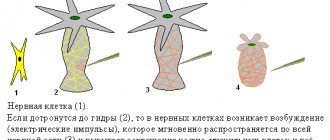Frustration - what does it mean? Imagine that you have been waiting for a concert of your favorite artist for a long time. We took time off from work, bought tickets in advance, and made plans to meet with friends. And suddenly the boss decides that you definitely need to be in the office on this day. How will you feel when you hear this news? Surely it will be disappointment, anger, helplessness and severe resentment. This state is called frustration. Why is it developing? And how to deal with it?
What is frustration - definition in psychology
Frustration is a mental state that occurs when a person, for some reason, cannot satisfy his need or fulfill his desire. In this case, the obstacle is external circumstances or internal reasons.
Frustration occurs under the following conditions:
- An individual has a need or desire that he plans to satisfy.
- An action plan has been drawn up in advance, explaining how and what is best to do.
- On the way to realizing your plans, external or internal obstacles arise, sometimes insurmountable.
In short, by definition in psychology, frustration is a typical reaction to disappointment, unrealistic hopes, and the impossibility of self-realization. All these situations are called frustration. Obstacles that arise on a person’s path are called frustrators or frustrating influences. The reaction to frustration is frustration tension. The higher it is, the more difficult it is for an individual to adapt to new conditions. At this moment, the body’s psychophysiological reserves work at full capacity, which ultimately leads to moral and physical exhaustion.
The state of frustration largely depends on how strong a person’s psyche is. Therefore, it manifests itself in different ways. Someone experiences slight sadness and annoyance. Others face unbearable suffering. In both cases the emotions are negative.
The development of frustration, the strength of sensations and their duration are determined by two factors:
- How important was a goal for a person that he was unable to achieve, or an unmet need. Let's give an example. Let’s say a girl didn’t have time to go to the store, which is why she didn’t buy a new dress for an important meeting. Or a married couple, dreaming of children for a long time, once again encountered failure with IVF. There will be experiences in both cases. But in the second, the state of frustration will be many times stronger.
- Psychological state of a person. Does he know how to find a way out of critical situations, does he have leadership qualities, can he soberly assess the situation and make decisions.
The types of reactions to frustration in the described cases vary. The meaning of the word “frustration” in Greek is the collapse of hopes. So, being disappointed, a person can completely abandon an unattained goal or need. This is one option. There are two others:
- change the goal while maintaining available resources;
- still go forward, simultaneously finding ways to get around the obstacles that stand in the way.
In simple terms, the concept of frustration arises when a person is simply unable to change circumstances. Let's go back to the example with the girl who didn't have time to go to the store. But there are also others that she can stop by before the meeting. This means that she has nothing to worry about. But in the case of the inability to give birth to a child, the situation is more complicated. Here, frustration refers to insurmountable obstacles that are almost impossible to eliminate.
Replacement target
Just as many paths can be found to achieve the same goal, an alternative goal can be discovered by which a need or desire can be satisfied. In neurolinguistic programming and hypnotherapy, for example, there are techniques that allow you to transfer the feeling of falling in love from one object to another, and thus get rid of unrequited love.
Of course, a person whose instinct is already firmly fixed on a certain person refuses to believe that he could ever experience such strong feelings for someone else in his life.
It takes patience to find a target that can compensate for the properties of the one being replaced. But if this were impossible, then people would not marry happily several times during their lives and would not find the meaning of life in new activities after losing the opportunity to do what they love. For example, actor A. Banderas wanted to become a football player, but after a leg injury he had to give up his dream of a sports career. It is unlikely that the world-famous actor is still experiencing frustration due to unfulfilled teenage hopes.
Reassessment of the situation
The obvious solution to getting out of a state of frustration caused by internal conflict is to choose between alternatives. Appeal to both your mind and your emotions.
Weigh the pros and cons of each of your desires. Transfer the analysis process to paper. After writing down all possible arguments, highlight those that are of key importance for your life. Discard the rest. Identifying your core values will help you cope with anxiety and fear. If you cannot cope with the problem on your own, contact a specialist. Psychologist-hypnologist Nikita Valerievich Baturin will help you get rid of a psychological problem in 5 sessions of hypnotherapy.
You can understand what your soul is really leaning towards by trusting the decision to tossing a coin. Your emotional reaction to the result will tell you which course of action is preferable to you.
Another way to make a choice is to live through its results in your imagination. Of the two alternatives, choose one as the final one. As if you had already made a choice in her favor. Before going to bed, try to feel as realistically as possible that the final decision has already been made. There is no need to take any specific steps towards implementing the chosen alternative.
The whole next day (several days, a week - it all depends on the fate of the choice) watch yourself. Literally everything is important - mood, level of energy, performance, feelings towards other people, degree of irritability. Repeat the same process for the second, third choice.
Completing this exercise helps expand the perceived context of the problem, realize hidden fears and true needs. It is often possible to combine seemingly opposing elements. For example, a person's desires to assert himself, but at the same time maintain the love of others, can be combined in attempts to become a leader of a group.
The fact is that any serious internal conflict is a sign of splitting the integral “I” into several subpersonalities. A thoughtless refusal to satisfy the needs of any of the subpersonalities will inevitably cause sensations equivalent to the amputation of a body part. Therefore, in a situation of internal conflict, as well as external, it is important to seek a compromise.
Reassessment of the situation can occur gradually in the process of long reflection, or unexpectedly, as a result of insight. One of the methods for integrating the psyche is hypnosis.
Theories of frustration
The state of frustration has always been a lively discussion in the world of psychology. This has led to several related theories.
D. Dollard's theory
According to this theory of frustration, it is closely related to aggression. The nature of this emotion has been studied by many scientists. And here's what they found out:
- Biologists believe that the gene for aggressiveness is inherent in a person from the moment he is born. In men, due to the greater amount of testosterone, it manifests itself more strongly, and in women it is weaker.
- Sigmund Freud said that aggression indicates self-destruction and that a person is not satisfied sexually.
- Sociologists are confident that the reason for aggressive behavior lies in relationships within the family.
As for Dollard's theory, it says that aggression invariably brings with it experiences and vice versa. The strength of aggression directly depends on the significance of the unachieved goal and the difficulty that stood in the way of achieving it. But this is not the most interesting thing. According to the scientist, this negative emotion is directed not at obstacles or circumstances, but at those people who have nothing to do with them.
Dollard's theory has been heavily criticized because frustration is a concept characterized not only by aggression, but also by a number of other negative emotions, such as melancholy and despondency.
Theory by K. Lewin, R. Barker, T. Dembo
According to these scientists, frustration contributes to regression. In psychology, this is the name for a state in which a transition occurs from one form of development to another, weaker one. For clarity, we can cite the example of elderly people who in old age become like children, both in behavior and emotionally.
In the case of frustration, the situation looks something like this: a disappointed person tries to protect himself from unpleasant emotions. Regression occurs - a kind of defense mechanism. The individual relieves himself of all responsibility for not achieving his goals, refuses further action and simply gives up.
N. Mayer's theory
According to this theory, frustration robs people of their ability to set goals. They focus on failures, which makes them unable to look forward and change something in their lives. The result is chronic apathy.
Maslow's theory
Remember Maslow's pyramid of needs? So, he said that the strength of frustration depends on the level of unsatisfied need. For example, not getting a desired position will cause stronger feelings compared to not buying a dress or not watching a movie premiere.
Behavioral patterns
It is impossible to say unequivocally what frustration means, since the condition manifests itself differently in each individual. For one, this is expressed in apathy and complete reluctance to do something, for another – in aggression, which is directed at oneself or other people.
Frustration can manifest itself in flight. In this case, the person avoids situations that cause negative emotions. In some cases, the substitution mechanism is triggered, and the individual transfers one need to another.
Sometimes a person in such a state begins to look for positive aspects. He tries to convince himself that failure will only benefit him.
Signs of frustration
Signs of frustration do not always manifest themselves in full force, so this condition often goes unnoticed. But it is still possible to diagnose it.
So, the following symptoms are characteristic of frustration:
- Focus on the problem situation. A person cannot think about anything else, which is why he ignores what is happening in other areas of life.
- Helplessness, hopelessness. The individual realizes that he needs to be distracted, but he is not able to do this.
- An ongoing feeling of inner anxiety, melancholy. It seems that life has lost its colors. All this provokes the development of a depressive state.
- Decreased performance, laziness, apathy. The desire to do anything completely disappears. Motivation goes away along with it.
- Low self-esteem, guilt, lack of confidence in yourself and your abilities.
To the listed signs of frustration one can add indulgence, isolation, and refusal of any contact with the world.
Frustration emotions (structure of frustration)
The emotions that most often accompany frustration are not always appreciated. But it is precisely the manifested emotions that can be considered symptoms, signs indicating the true cause of frustration.
- Resentment. Occurs when a person’s sense of dignity is violated, undeserved (in the opinion of the individual) humiliation. For example, with reproaches, insults, deception, incorrect remarks and accusations. Resentment can be stored in a person’s subconscious for a long time, depleting him. Or force you to consciously develop a plan of revenge, to show aggression.
- Disappointment. Occurs when expectations are not met. This is dissatisfaction and displeasure due to an unfulfilled promised or expected event. The more was promised or the stronger and more desirable the expectation, the greater the person’s disappointment.
- Annoyance. This is regret with a hint of anger, caused by one’s own failure or the failure of friends or a significant group (for example, a football team).
- Anger. Indignation, indignation, anger because of one’s own powerlessness in the face of obstacles that arise along the way.
- Fury. Behavior full of aggression. Rage can be noble (war), constructive (debate), destructive (violence, senseless cruelty).
- Sadness. Loss of something or someone. Feeling of loneliness due to the loss of prospects for achieving a goal or communicating with a person. We are talking about anything personally significant.
- Dejection. It consists of a feeling of hopelessness from the inability to achieve a goal, boredom and sadness, loss of interest in everything that is happening. Dejection is accompanied by awareness of the prospect of an unfavorable outcome of the current process. If the process has already ended and the forecast has been confirmed (the person has failed), then a feeling of hopelessness arises, which is accompanied by other emotions (disappointment, sadness, grief, despair).
Thus, frustration is a reaction to life difficulties that interfere with achieving the desired goal. It is reflected in the emotional, cognitive and behavioral spheres.
Causes
Conventionally, the causes of frustration are divided into 3 groups:
- Social, moral, ethical. In any of his actions, a person takes into account social norms or even his own concepts of what is good and what is bad. An example is sexual dissatisfaction associated with the widespread belief that one should not enter into intimate relationships before marriage.
- Physical, biological. Let's give a simple example of frustration. You planned a serious event, but suddenly you broke your leg and ended up in the hospital. You wanted to carry out your plans, but circumstances played against you.
- Psychological. An individual cannot achieve a goal due to the fact that he considers himself not strong enough, smart enough, etc. He suffers from low self-esteem, some fears, and complexes.
Also, reasons can be divided into external and internal. The first include improper upbringing, frequent conflicts, dissatisfaction with the place occupied in society. The internal reasons for the development of frustration are contradictions in the process of setting goals. Thus, a person can try to simultaneously satisfy desires that are opposite to each other. One will be fulfilled, but the second, accordingly, will not. This is how frustration arises.
Definition
The word corresponds to the concepts of “disappointment” and “dissatisfaction”, but reveals their deeper characteristics.
Frustration in psychology is:
- feelings of sadness or irritation due to an inability to achieve a goal or change a situation;
- impeding progress, success or plans;
- a chronic state of vulnerability or dissatisfaction that is caused by failure to achieve set goals;
- negative behavior that occurs when motivational impulses are blocked;
- inability to complete a behavioral process due to the lack of the desired stimulus (the presence of a marriage partner) or the presence of physical barriers.
In all cases, frustration is accompanied by stress. The severity of the condition depends on the individual characteristics of the person and the factors that provoked it.
Forms
In psychology, there are 3 forms of frustration. The first is extrapunitive. What it is? This is a state when a person believes that circumstances and the people around him are to blame for his failures. He shows aggression towards them and at the same time strives to achieve his goal. It is not possible to achieve what you want, therefore, aggression, as well as frustration in general, intensifies.
The second form is called intrapunitive. It means that a person focuses on himself as the cause of failure. He becomes withdrawn, depressed, and anxious. Added to these negative emotions is a loss of meaning in life and complete apathy. The individual cannot perform even simple everyday activities, in particular, take care of the house and himself.
And finally, the third form of frustration is impunitive. A person shows complete indifference to the difficulties along his path, or considers them fate, predestination. He does not blame anyone for failures, but simply gives up desires and needs or switches to something else.
Correction methods
In order to understand what frustration is, it is not necessary to know the definition. It is enough to imagine the features of this condition. It is dangerous if prolonged. Experts identify several methods of disposal.
Replacing funds
Sometimes a person is prevented from achieving a goal by the wrong road. In this case, he needs to analyze his behavior and think about whether he has chosen the right path.
It is useful to develop a consistent action plan
You can't always succeed the first time, that's normal. You need to be able to stop in time and think about your actions.
Replacement target
Sometimes a person misjudges the sequence of work. In this case, he immediately sets himself an unattainable level of goal. Therefore, you need to think about the stages and sequence of actions, and then set a simpler goal.
A simple example: a person takes up sports and in a year wants to get to the Olympics. This cannot be done, but you can set a goal in the form of receiving a discharge.
Reassessment of the situation
The concept of “frustration” is considered in psychology from the point of view of dissatisfaction. But a person does not always understand where his desires are and where those are imposed by society. Therefore, it is important to be able to reflect and separate true needs from false ones. If a goal is imposed by society, but the individual himself does not need it, then there is no point in talking about dissatisfaction.
Types of frustration
Types of frustration differ from each other in the area of life in which a person was unable to get what he wanted. There are several of them.
Love and sexy
The first appears in cases where there is a break in relationships or some serious problems. Without receiving reciprocal feelings, a person experiences an increase in his attraction to the object of passion. Such an emotional outburst sometimes leads to inappropriate behavior, manifested in an obsessive desire to meet or even violence.
Frustration looks almost the same in existing families, when one of the partners does not receive from the other what he needs, for example, attention. The lack of what you want causes a lot of negative emotions. It doesn’t matter what kind of relationship there is in the family.
As for the intimate sphere, frustration here is not much different from love. Without receiving satisfaction, the partner becomes aggressive and irritable.
Social
Social frustration occurs in cases where there are conflict situations in relationships with society. It appears if a person cannot get the desired position, social status, the opportunity to study at the chosen educational institution, etc.
It is worth noting that diseases that limit mental and physical activity are also involved in the development of social frustration.
Frustration of needs
We are talking about Maslow's pyramid of needs mentioned above. Failures and mistakes are not needed to develop this type of frustration. It occurs after the need is satisfied. Why? Because the individual faces a new goal. And so on in a circle. The inability to satisfy absolutely all existing needs causes frustration.
Frustration in relationships
We are not talking about romantic relationships, although this type of frustration is most often mentioned in connection with them. It's about relationships with people around you. Disappointment, aggression, and resentment arise in cases where an individual cannot defend his opinion and makes concessions, does what he does not want. Unable to refuse, he gives in to his opponent, which is why he subsequently experiences anger and other unpleasant emotions.
False
This state is similar to frustration with expressed emotions. But they have less power. You can cope with them without resorting to the help of a specialist.
False frustration occurs when the functioning of those parts of the nervous or endocrine system that are responsible for emotions is disrupted. For example, an excess amount of adrenaline causes emotions in a person similar to those that appear during frustration.
Existential
Existential frustration is a condition characterized by disappointment in life in general. An individual loses the meaning and purpose of existence for many reasons. Among them:
- dismissal amid high unemployment;
- retirement;
- completion of training in the absence of the opportunity to get a job in the specialty;
- complicated divorce;
- economic and political changes in the state.
It is difficult for a person to adapt to new conditions. He does not see opportunities to realize his abilities, so he experiences boredom and apathy. Over time, such circumstances lead to the development of neurosis. And it entails a deterioration in relationships with others, an attraction to alcohol and drugs.
Formation of tolerance to frustration
Tolerance for frustration can be taught. People with a low level of tolerance to frustrating situations have certain irrational dogmatic beliefs, which are expressed in the form of “never”, “always”, “should have”, “unbearable what”. The use of such dramatic statements leads to a decrease in mood with any, even the most minor failure.
If you want to avoid constantly falling into a state of frustration in the future, cognitive therapist A. Ellis recommends getting rid of the following global irrational attitudes:
- “I have a responsibility to achieve success and gain the approval of significant others. And if I don’t do it or don’t get it, then there’s something wrong with me.” (Leads to low self-esteem, self-aggression, depression).
- “All the people around me are obliged to be fair and treat me well. And if they don’t do this, then they need to be punished.” (Provokes anger, rage, murder).
- “The circumstances in which I live (economic, political, social) must be organized so that I can realize all my desires without difficulty. The fact that life is so difficult is simply terrible!” (The result of persuasion is low tolerance to frustration).
Having failed, it is important to allow yourself to step back and forgive the mistake. Tell yourself that you have lost the battle, but the outcome of the war is still unclear. Develop consistency and patience. When making plans, learn to predict possible difficulties in advance. Develop backup options.
Sublimation is the most mature form of getting out of a state of frustration. Release the emotion through creativity: drawing, dancing, music. If you feel angry, exercise will help. Give preference to sports that involve hitting: tennis, wrestling, and so on.
Consequences
So what is frustration? These are negative emotions caused by the inability to get what you want, insurmountable obstacles to achieving your goal. Ideally, the response to frustration should be positive. This means that a person is looking for ways to get around problems and difficulties or learning from mistakes made. But it also happens that the negativity drags on. In these cases, emotional frustration has the following consequences:
- Aggression. This emotion can be directed at a problem or circumstance, or at people who have nothing to do with the situation. It manifests itself in the deliberate creation of conflict situations, hostility and even physical violence. The individual cannot control himself.
- Auto-aggression. The same as aggression, only it is directed at oneself. The main manifestation is self-destruction. A person deliberately risks his life, ignores the body’s alarm signals and refuses treatment, and develops bad habits.
- Retreat. In this case, one of the defense mechanisms is used - depreciation. A person who cannot get what he wants reduces its importance. This happens not only in words, but also in behavior. So, he can perform impulsive actions and make strange decisions.
- Regression. It was said above that during regression, trying to protect oneself from negative emotions and experiences, a person returns to the previous level of emotional development. It all looks something like this: having failed to achieve his goals, he freaks out, cries, and blames those around him for everything.
- Fixation. The individual realizes that he will not be able to fulfill a desire or satisfy a need. Therefore, he simply “fixes” himself in his normal state. He lives the same way as before, but aimlessly.
- Pointless activity. Experiencing strong anger and other negative emotions, a person decides to channel them in what he thinks is the right direction. But in fact, all his actions are meaningless and disordered. They don't bring any benefit.
And, probably, the most common consequence of frustration is apathy. Its main danger is the high risk of developing into depression.
Diagnostic methods
There are several ways to identify emotional frustration in a person. The short questionnaire was developed by V. Boyko; it contains 12 points, where a point is awarded for each.
Important! If the final result is more than 10 points, then the individual has high frustration, from 5 to 9 - a high risk of development, less than 5 - there is nothing to fear.
A brief diagnosis is offered by L. Wasserman. It contains 20 questions, each answered from “completely satisfied” to “not satisfied.” The answer is scored from 0 to 4 points. The sum is calculated and divided by 20. As a result, if the result is 3.5-4 points, then high frustration, from 3.0-3.4 - average state, 2.5-2.9 - moderate, 2.0- 2.4 is weak, anything below 1.9 should not cause concern.
When diagnosing, it is important to understand that frustration and deprivation are different conditions. They require a different approach to correction. V. Boyko has a more detailed diagnosis, which allows one to determine accumulated emotions.
Prostration and frustration are also different states. With prostration, a person experiences serious nervous exhaustion, while frustration occurs when it is impossible to satisfy one’s desires.
How to get rid of frustration
First you need to learn to control negative emotions. It is important to eradicate them at the moment they appear. Thanks to this, you can avoid senseless, impulsive actions. Self-regulation techniques, for example, concentration on breathing, will be of great help in this.
The next step is to think about what prevented you from getting what you want or achieving your goal. If the problem can be solved, look for a solution. If this is not possible, replace the goal, increase the time frame for achieving it, and set several intermediate tasks.
The third step is to meet and communicate with those people who have already encountered frustration and were able to overcome it. This will help you realize that you are not alone. In addition, perhaps the experience of new acquaintances will be useful to you in your situation.
What else will help cope with frustration?
- Look at yourself from the outside. Is it really that bad? Maybe we shouldn’t stop and give up?
- Think about it, is the fulfillment of your desire so important to you? Is it related to fashion, stereotypes or public opinion?
- Make an action plan. If you decide that your desire needs to be fulfilled at all costs, but there is no such opportunity now, think about what you can change. Carefully study all the steps that can be taken in the direction you need. Make a detailed plan. Assess the difficulty of each item.
- Decide on a deadline. Set a date by which you will implement each item in the plan. Just don't overestimate your strength. Remember that you are human. Under no circumstances set yourself impossible tasks, otherwise your frustration will only increase.
- Be patient. Don't forget that you won't be able to achieve your goal in a day or two.
And one more important piece of advice: rest. Emotional fatigue is an obstacle that will prevent you from working effectively. Therefore, take breaks, for example, set aside time for a hobby.
Popular protection mechanisms
Among the mechanisms of psychological defense in case of frustration, retreat, aggression, compromise and substitution are most often used. I propose to consider in more detail the forms of each of them.
Retreat
Retreat takes different forms:
- The most popular option is to imagine achieving a goal using your imagination. In his imagination, a person overcomes all obstacles with dignity, which smoothes out negative experiences in real life. Sometimes it can happen unconsciously, expressed in dreams.
- Another popular retreat option is nomadism. Most often we are talking about moving from one city to another, frequently changing location. Less often - other external changes that do not solve internal problems.
- Regression. The person returns to childish behavior. This can continue until such reactions come into irreconcilable conflict with reality.
- Crowding out. Over time, a person really forgets unpleasant events and emotions.
- Avoidance. A person avoids difficult situations, important tasks, and conflicts as best he can and as much as he can.
Aggression
Aggression makes itself felt in all forms and types. The personality is overcome by the need to eliminate tension caused by certain conditions. As a result, behavior becomes directed:
- to punish the offender;
- eliminating it from the life of the individual;
- humiliating or harming the offender;
- maintaining self-esteem in any way.
The reaction of aggression includes revenge (including inadequate, for example, causing harm to close people of the target of revenge), affective behavior (touchiness, negativism, stubbornness, emotional instability), complaint (seeking empathy and support in a conflict situation). In rare cases, aggression takes an internal direction. Then there is excessive self-criticism, self-humiliation, addictive behavior, and suicidal tendencies.
The choice of form of aggression (verbal or physical, direct or indirect) depends on the individual’s experience, upbringing, and external conditions. Under certain circumstances, a person is able to control aggression and transform it into at least indirect aggression.
The most common variant is indirect aggression with object replacement. Simply put, a frustrated person finds a scapegoat. The second most popular option is self-affirmation through the failures of other people, self-justification through comparison with those whose lives are even worse.
Compromise and substitution
This means the formation of opposite reactions to the desired needs. For example, this is how moralists and moralists, fighters for morality, appear. In fact, this is a reaction to the inability to follow the behavior that they condemn because of this impossibility.
The second substitution option is projection, which manifests itself as suspicion. A person attributes to other people those qualities and characteristics of behavior that he cannot, but wants to follow.
Compromise forms also include sublimation and rationalization. Read more about this in the article “Mechanisms of psychological defense of the individual.”
Examples of frustration from life
Probably every person has encountered frustration. Imagine a situation familiar to many: a man is going to watch an important football match for him. He did everything in his power to achieve this: he agreed with his boss to leave early, bought his favorite beer and snack, and invited friends. The first difficulty is a traffic jam. But it has been successfully overcome. The match starts at 17-00, there is still time to prepare. And now the guests are assembled, the table is set, the referee is preparing to blow the whistle to start the match. And suddenly, due to scheduled work, the electricity goes out. Frustration arises.
In this case, the difficulties that stand in the way of the hero can be overcome, for example, by going with friends to a sports bar.
I'll give you an example from my life. I get frustrated in the morning. Usually in the evening I draw up a rough action plan and set an alarm for a certain time. It seems simple. But in the morning I manage to miss the alarm and oversleep. Naturally, I get up after this in a bad mood and with no desire to work at all.
In my situation, the obstacle is also easy to overcome. It is enough to go to bed a little earlier, and in the morning do not lie down, but get up at the first alarm signal.










